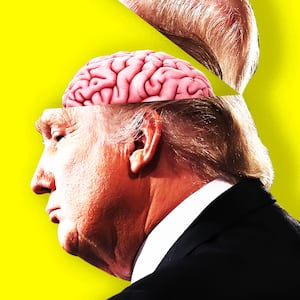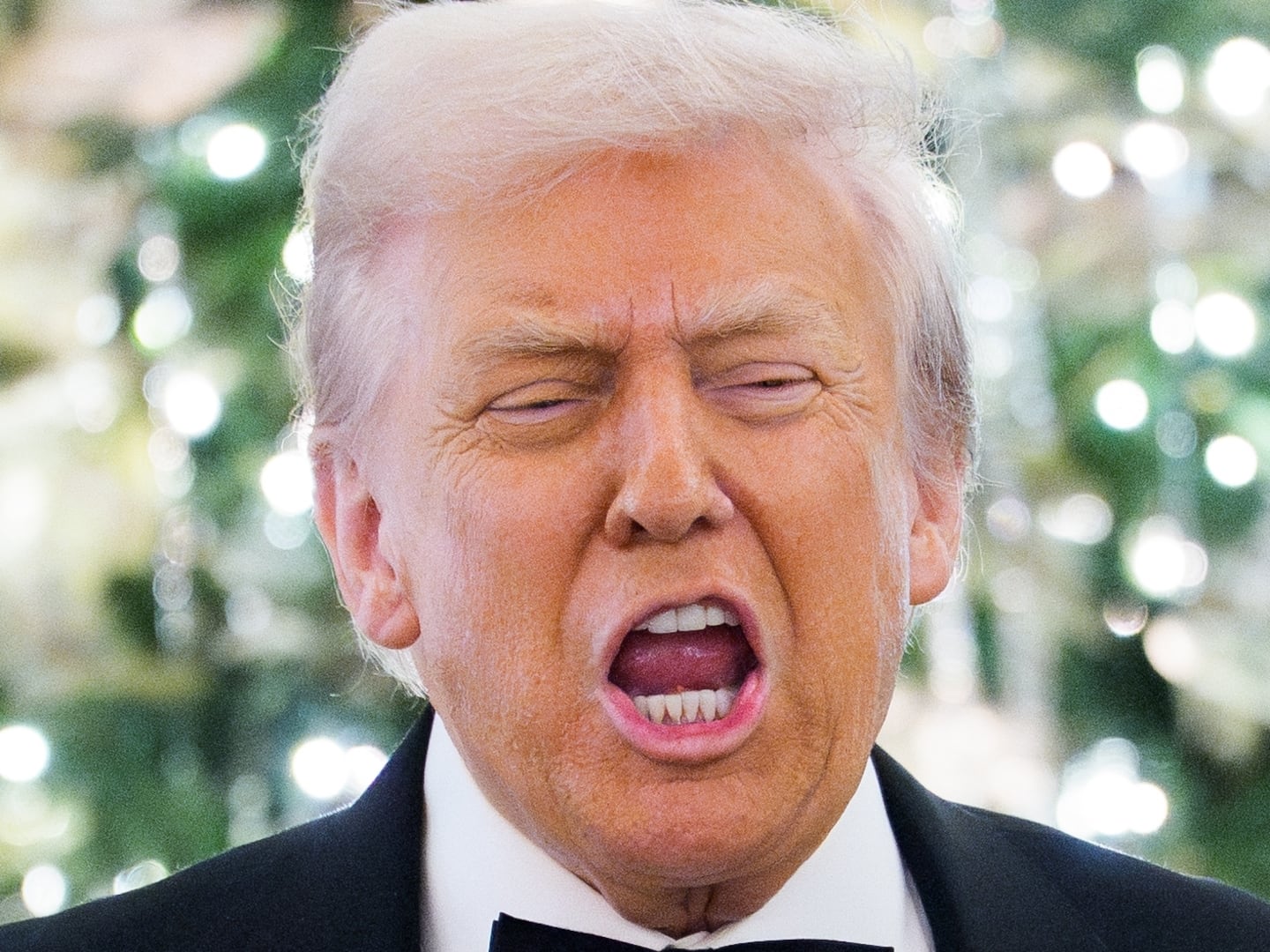We recently assessed The Report on the Investigation into Russian Interference in the 2016 Presidential Election—the “Mueller Report”—from a mental health perspective. The wealth and quality of its content made it possible to test President Donald Trump’s capacity to make rational, reality-based decisions—in other words, whether he had a sound mind.
We are authors in the public-service book The Dangerous Case of Donald Trump: 37 Psychiatrists and Mental Health Experts Assess a President. We published the book not because of political leanings but because of our genuine concern for public health and safety. Our analysis of the Mueller report, based on sworn testimonies of his closest associates, proves that we had real reason for concern.
Our conclusion was this: The president failed to meet any of the criteria for mental capacity, and this is a national emergency. We recommended first and foremost that the president be removed from access to nuclear weapons and war-making powers.
Last March, 13 top experts in fields ranging from history to journalism to nuclear and climate science assembled in Washington to show how the president was unfit from each of their perspectives. Our analysis of the Mueller Report explains why: A person without mental capacity lacks the basic requirement for legal, political, military, or presidential capacity.
To educate the public, we held an online town hall on the day before Robert Mueller’s testimony. We initially scheduled the meeting on Capitol Hill with the attendance of several Congress members, but after the testimony was postponed, we decided to move it online and held a private conference with lawmakers instead. Below are the questions we proposed. We knew they would not likely be asked of the former special counsel, but the public deserved to know what questions arose from our findings.
1) Given the glaring signs, did you consider a capacity evaluation prior to interviewing the president? In every criminal or civil investigation, and in practice every time a client is asked questions, mental capacity is assumed. Therefore, if there are reasons to believe that a client lacks mental capacity, the legal professional is supposed to refer the person for evaluation by mental health experts. This happens in a wide range of cases, from writing a will to standing trial, where mental capacity is a prerequisite.
2) Over the 30 or so times that Mr. Trump answered and did not recall answers to your questions, did you ever consider his claim of inability to recall as deceitful? Prosecutors regularly encounter psychopathic individuals who lie, manipulate, and violate others in order to get their way. Whereas they are not expected to detect the underlying disorder (and not all individuals who lack a conscience break the law), they must keep vigilant against unlawful actions without taking the defendant’s word at face value.
3) Given the president’s many traits that are commonly shared with violent individuals, did you not consider it prudent to recommend a violence risk assessment? Courts regularly request violence risk assessments of mental health experts, in order to determine whether individuals pose a public safety threat. We wished to ask if the former special counsel had knowledge of any president or presidential candidate in American history who urged his supporters to commit assault and battery against anyone protesting against him; offered to pay any legal fees they accrued as a result of doing so; and complained, after they had committed the assaults, that they had not been violent enough; and then, when one of his supporters escalated the violence to murder, that “there were good people on both sides.” Was he aware of any other president or presidential candidate in American history who reminded his followers that those among them who own guns could always assassinate his political rival if she were elected and they disapproved of her selection of judges? Did he recall any other president in American history who refused to promise to respect the results of a presidential election if he lost it, and threatened that the police, the armed forces, and his armed paramilitary supporters—“bikers for Trump”—would engage in violence if he were deprived of victory? If he did not recommend a violence risk assessment on such a president, on whom would he recommend it?
4) Did the evidence in your report that Mr. Trump has difficulty knowing the difference between truth and lies affect your decision not to call in the president for an in-person interview? How would the former special counsel explain the understanding that President Trump refused to give an oral interview because his attorney was aware that the president always lies and would therefore make himself guilty of perjury? The former special counsel himself expressed that he wished to avoid endless legal battles to force the president to testify orally, which could extend his investigation well beyond the 2020 election campaign.
5) As a prosecutor, do you see a nexus between the president’s hate speech and danger to others as targets of his rhetoric? Danger to self or others makes an individual unfit for almost any job. It is the criterion for hospitalization, if not continued incarceration. That the president uses violent rhetoric from a powerful office is to us one of the greatest threats of our time. Many who responded to his incitement to violence have been charged and locked away. If prosecution does not notice a connection between his words and the many forms of escalating violence, then those who do must intervene for public safety.
Mr. Mueller’s report may not have been able to conclude whether or not the president committed a crime. The same hard data, however, allowed us to conclude that he lacked mental capacity for sound, rational decision making based on reality. Investigations of capacity should accompany investigations of criminality. But of the two, capacity is the real emergency.
Bandy X. Lee, M.D., M.Div., is a forensic psychiatrist at Yale School of Medicine. James Gilligan, M.D., is a psychiatrist at New York University School of Law. James R. Merikangas, M.D., is a neuropsychiatrist at George Washington University School of Medicine. All are experts on violence and have discussed the above five questions at an online town hall on July 23, 2019 (more information at: dangerouscase.org).







